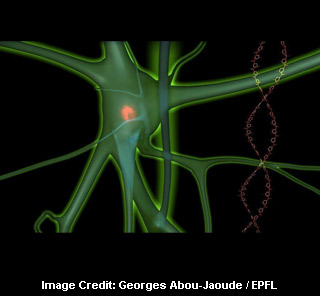
A mutation of the gene coding for LRRK2, a large enzyme in the brain, apparently is the most prevalent genetic cause of the disease. On mutation, this enzyme possibly becomes hyperactive leading to death of vulnerable neurons and a decline in the levels of the brain neurotransmistter dopamine. Such a reduction in dopamine levels reportedly gives rise to PD symptoms, including tremors, instability, impaired movement, and later stage dementia. During the present investigation, experts successfully introduced mutant LRRK2 enzyme into one hemisphere of a rat brain. As a result, PD manifestations occurring in humans within one side of the rodent’s body were achieved.
On completion of two years, researchers produced and optimized a viral vector to deliver mutated, LRRK2 coding DNA into the rat brain. The newly introduced animal model developed by EPFL appears beneficial for understanding Parkinson’s disease. Neuroscientist and EPFL President Patrick Aebischer, lead investigator of the research, and colleagues anticipate that drug targeting the enzyme LRRK2 can supposedly help in halting or declining disease progression.
The research is published on February 2, 2011, online in the Journal of Neuroscience
